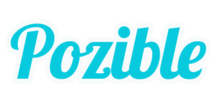Pozible

Pozible is an Australia-based crowdfunding platform and community-building tool for creative projects and ideas. It was developed to help people raise funds.
Model
Pozible is a crowdfunding platform and creative community. Projects are launched on the Pozible website after a reviewing process to make sure the project abides by the platform's project guidelines. Project creators select a deadline and a target amount to achieve. Supporters are invited and encouraged to pledge an amount to support the project's campaign. During the project's campaign, project creators are encouraged to publicise their works through embedded videos, word of mouth, social networks and regular project updates.
If the nominated target is not met by the deadline, pledges are not processed. Supporters require a Mastercard or Visa credit card or debit card to make a pledge. In May 2012, Pozible introduced PayPal as a payment method.[1] This allows projects from around the world to raise funds in their country's currency.
Pozible takes a 5% service fee from successful projects, and a transfer is made into the project creator's bank account or PayPal account. Partners and previously successful project creators are only required to pay a 4% fee for their successful projects.[2] In turn, project creators must provide rewards (non-financial at present) to their supporters, relative to how much is pledged, though pledgers are not obliged to select a reward, they can still pledge funds with no reward chosen.
Unsuccessful projects are not required to pay a fee.
History
Pozible was launched as Fundbreak in May 2010. Pozible's good reputation among arts practitioners and connections in the local Australian arts industry has seen collaborations with festivals and government partners such as ScreenWest, the Emerging Writers Festival[3] and the Melbourne and Sydney Fringe Festivals and many local non-for-profit organisations.
In November 2011 Pozible hosted the largest crowdfunded project created by a single person in Australia. Kylie Gusset raised A$38,893 for her project Ton of Wool', to promote Australian processed wool.[4]
The Fundbreak brand was relaunched as Pozible in January 2011, and established offices in Melbourne and Sydney, Australia. In May 2012, Pozible launched internationally - switching to www.pozible.com from www.pozible.com.au - and partnered with PayPal to offer multi-currency transactions. Pozible now accepts projects and funding support in 22 major currencies.
In August 2012, real life multiplayer role-playing zombie game Patient 0 by IRL Shooter broke Australian crowdfunding records and became the largest crowdfunded project in Australia. They raised $243,480, with an initial funding goal of $10,000. The largest crowdfunded project before Patient 0 was the New Matilda relaunch, raising AUD$175,838 in December 2010.[5]
In 2013 Pozible achieved a number of milestones: it raised AUD $1 million+ in a single month for the first time; this was repeated in September 2013 and in subsequent months. Several individual project records were also set: Australian band Eskimo Joe recorded the highest music crowdfunding total in Australian crowdfunding history generating: AUD$64,000+ for their forthcoming album 'Wastelands'; Melbourne band Twelve Foot Ninja raised over AUD$50,000 in a potential world record [highest crowdfunding total raised for a music video] and film project 'The Ride: East Coast' became the largest film category success on the platform, raising over AUD$105,000.
In 2013, Pozible also began accepting payments in BitCoin and announced its ambassador/outreach program: the Pozible Ambassador Network, which is made up of 100+ experienced crowdfunders. Pozible has also introduced Private and Subscription-based Crowdfunding, Team Building, and the Help Requests Board to facilitate peer support within the Pozible community.
As at 31 December 2013, Pozible went live in Malaysia and Singapore.
As at January 2014, Pozible has hosted 5500+ projects and raised a total of $17+ million towards projects from Australia and around the world.It has introduced Self-Hosted crowdfunding, announced a major partnership with MGM's Waterfront Records that will enable musicians who crowdfund to have their distribution needs fulfilled. Pozible continues to operate from its headquarters in Melbourne, Australia and has opened offices in Silicone Valley (USA), China and Singapore.
Pozible was listed as one of three start-ups to watch in 2014 by Australian Financial review, one of 'five start ups to watch in 2014' by Startup Smart and Smart Company and was featured on the cover of TechCrunch.
Overall success rate
Pozible celebrated $1 million in pledges in October 2011. By May 2012, Pozible had raised over $2.5 million and successfully funded over 1300 projects. By June 2012, Pozible had reached $3 million in pledges.[6] As of Decemher 2013, Pozible successes total more than AUD$17 million.
The single largest project was IRL Shooter, which raised ~AUD $243K from an initial target of 10K. On Feb 11, Australian band Eskimo Joe became the most successful crowdfunded musical act in Australian history (so far...) raising ~ 60K after setting an initial target of 50K.
Pozible's overall success rate is 56%, with individual categories averaging up to 70%.
See also
References
- ↑ "Now Accepting Multi-Currencies!". Retrieved 16 August 2012.
- ↑ "June 6th: Lower Fees & Easy Application Process". Retrieved 16 August 2012.
- ↑ Zora Sanders; Lisa Dempster. "Pozible, Crowdfunding and the Emerging". Meanjin. Retrieved 21 November 2011.
- ↑ Gusset, Kylie. "part 1: how to make money using crowdsourcing (from someone who made amost $40,000)". Knitting in Public. Retrieved 21 November 2011.
- ↑ Chandler, Natalie. "Will crowd-funding save the Australian arts industry? Anything’s Pozible…". Australian Anthill. Retrieved 21 November 2011.
- ↑ "$3 Million in Pledges & Updated Crowdfunding Facts!". Retrieved 15 August 2012.